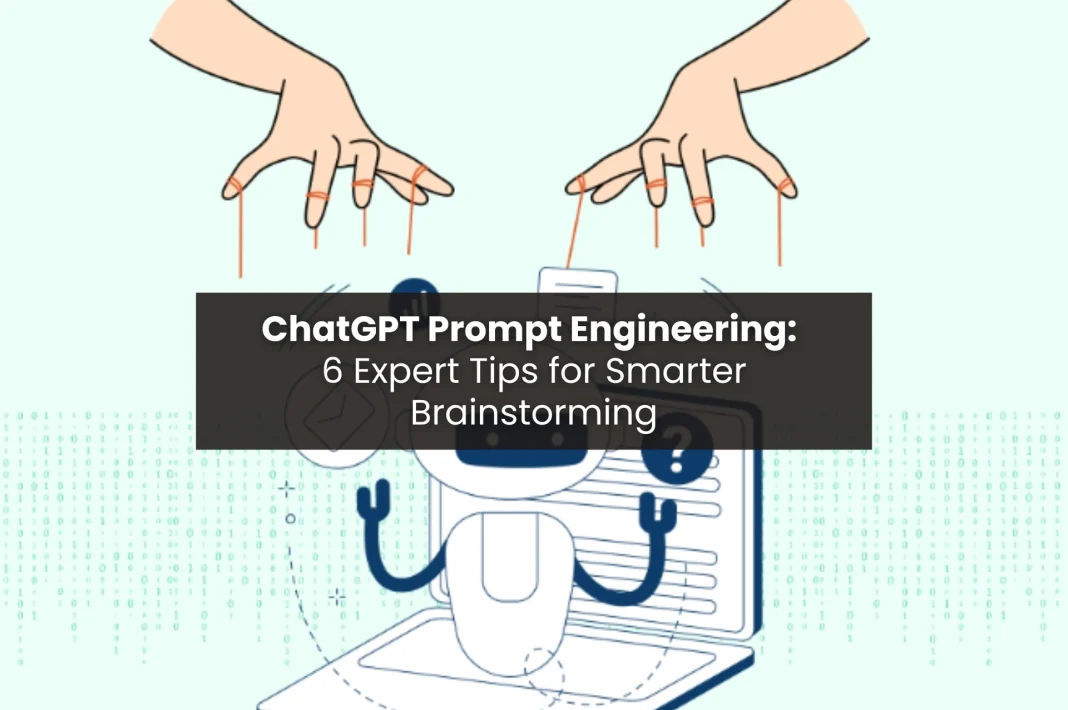Recently I took an online course on ‘Prompt Engineering for AI applications‘ where I learnt how important it is to feed an AI model, the right and effective prompt and how that makes all the difference. AI tools like ChatGPT are really helpful with brainstorming, but only if you know how to give the right prompt. Prompt is the secret sauce, the right instruction that will provide you your desired output. If you’ve gotten dull or repetitive answers, don’t worry I’ve got you covered. I’ll be sharing a few tips that will help you get smarter, fresher, and more creative results.
Before I share the tips, it is important to know what a language model is. A language model is AI trained to understand and generate human language. One important fact to always remember when working with an AI model is that you cannot assume they have common sense. They don’t. Language models turn words into smaller chunks called tokens. The encoder in the model reads the chunks, the decoder turns them back to words. Finally, the Attention mechanism helps the language model to understand which words are important.
6 Smart Tips for Brainstorming Ideas with ChatGPT and Other AI Bots

1. Specify the Context and Ask for Variety Upfront
Before you ask a question, clarify the context. If it is a SEO related question, say so. It’s important to set the topic or domain. So, let’s say you want subtitle ideas for your article, don’t just ask give me ideas for subtitle. Ask it to give you 10 subtitles and then you pick the best option. AI models usually tend to start with the most common answers. The deeper you dive, by specifically saying you want diverse or unexpected options, that’s when you’ll get you’re desired output.
2. Use Step-by-Step Prompts
Avoid vagueness and guide AI step by step. Instead of asking one big question, break it down into smaller steps. For example, let’s say you are building a new product, so you first ask it questions, then for solutions and at last for creative product names.
Think of your prompt like a mini checklist.
This way you’ll guide AI through your thought process, you’ll give it feedback loops to adjust tone, inclusivity, accuracy and then results will be much more useful.
3. Turn AI Into a Role Player
It is very important to set down the domain. If you want better answers, ask the bot to take on a role.
Say things like:
- “You’re a startup founder pitching to investors.”
- “Act like a 10-year-old testing a new toy.”
- “Be a travel planner for a family trip to Italy.”
When you set the scene and role, the AI shifts its tone and focus.
4. Let It Challenge You
Instead of just asking for ideas, ask it to test yours. And make sure you ask it to not sugar coat things, because if you don’t know ChatGPT has been acting like a people pleaser. If you don’t ask it to be honest, it will praise everything you have to say. Give it your list and ask it to find the weak ones and the ones that probably won’t work.
A even better idea, tell it to act like a critic, a user, or even your toughest investor. It will help you find gaps, mistakes that you might have overlooked.
5. Bounce Back and Iterate
If you ask for ideas, give it the clear context and even ask it for variety and yet aren’t happy with the set of answers, say so.
You can reply with:
- “These are too similar, please make them bolder.”
- “Try again, but add a fun twist.”
- “Now combine idea 3 and 7 into something new.”
The best tip I could give you is that treat it like a conversation and not like a search engine. Your feedback will help shape better and better responses.
6. Always Double-Check the Results
Remember AI is a tool, not decision maker. It can make mistakes. Make sure you are use inclusive, neutral phrasing for bias mitigation. Use it as a tool to get creative answers, organize your ideas, and to even speed up brainstorming. But make sure you always verify facts, test assumptions, and trust your gut. Do not blindly accept answers without cross checking. You’re the one responsible for what you present or create. So, have the upper hand and make sure that you are the one making the decisions. Let AI assist you, but do not let it replace your thinking.
To Wrap It Up
Think of prompts as recipes they need to be clear, should have all the steps, structured, and there should be no room for guesswork. For more tips on crafting effective prompts, check out our GPT-5 Prompts guide. Brainstorming with AI is like having a fast-thinking partner who never runs out of ideas. Additionally, better the prompt, better the output. Lead it with smart prompts, clear context, and always be ready for asking for better results.
For a detailed look at what’s behind Grok 3’s capabilities, check out our inside the Grok AI leak article.
